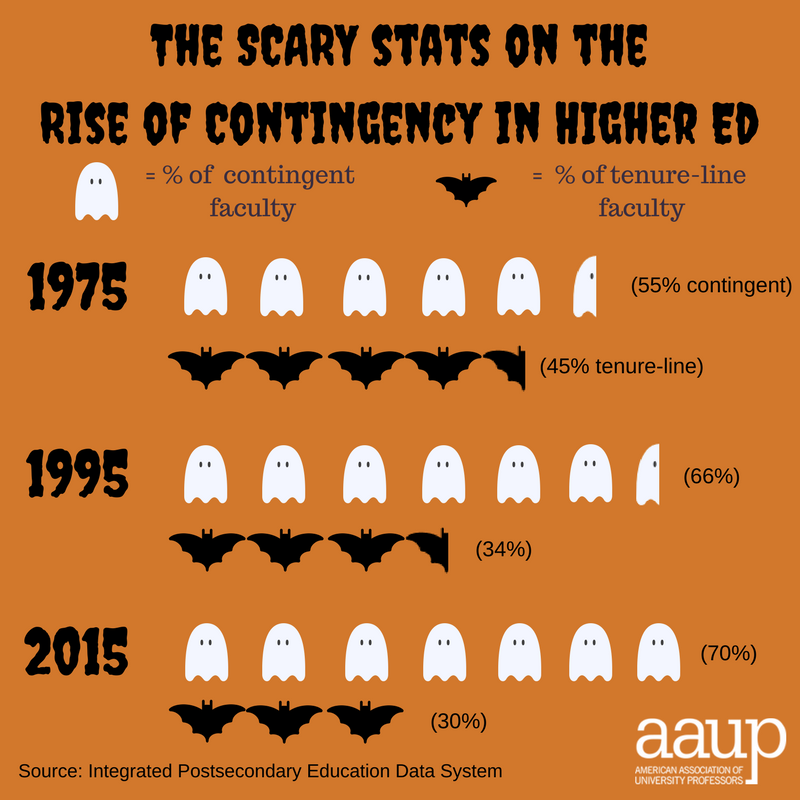Overheard at Miami:
“Tenure? I think it should go away. It’s an unfair system. Some people get a golden ticket to lifetime employment and some of us who are just as qualified have to work for low pay and no benefits and have no protections.” — Part-time faculty member X.
We salute Part-Timer X and understand where he’s coming from. It’s tough to stomach having trained for years to be a scholar only to find oneself in a nonpermanent and low-paid position. The precarious situation of adjunct faculty — as well as that of temporary full-time faculty — is one of AAUP’s core causes; it’s unjustifiable on many grounds.
But is tenure to blame for the obvious injustice of the situation?
Let’s get clear on what tenure is. Tenure protects free, uncensored scholarly research and inquiry. Miami’s policy manual clearly associates tenure with academic freedom. In order for inquiry to be free, it must be protected from censorship. When you are awarded tenure, your university has to show just cause in order to dismiss you. That way, you don’t wind up getting dismissed for doing controversial research or expressing unpopular opinions. Tenure is simply a way to enable and protect academic freedom. And while the tenure system is especially important at universities, where knowledge is (ideally) freely produced and disseminated, it’s actually the way more workplaces should work. Instead of aspiring to make all workers equally unprotected, Part-Timer X, couldn’t we aspire to a system in which there could be due process and academic freedom for you and for all faculty?
Here’s what tenure emphatically is not: it is not permission to do whatever the tenured professor pleases, and is not a free pass to incompetent, illegal, exploitative, or discriminatory behavior. While different institutions vary over what counts as cause for dismissal, incompetence in the classroom and illegal behavior would be cause at most universities.
In short, the due-process protections tenure provides should be the right of the majority of educators and researchers, not the “privilege” of a dwindling few.
By the way, if you’re a lecturer, a graduate student, a VAP or visiting instructor, or a part-time instructor at Miami — that is, if you’re among the people who teach roughly 60% of the credit hours at Miami* — you don’t have due-process protections, and therefore academic freedom in your classroom is not protected.
*See Miami University Budget Symposium 2017 presentation, p. 26.


Leave a Reply